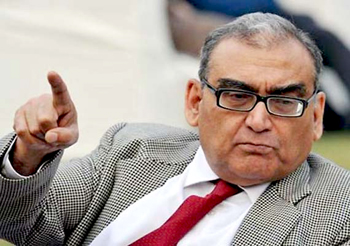
Former chairman of Press Council of India, Katju in his blog said that though he is not an admirer of BJP government, yet he sees nothing wrong in its decision to discontinue the postage stamps bearing the pictures of Indira Gandhi and Rajeev Gandhi.
While I am no admirer of BJP Govt, I see nothing wrong in its decision to discontinue postage stamps bearing pictures of Indira-Rajiv Gandhi
— Markandey Katju (@mkatju) September 17, 2015
“Indira Gandhi was a power crazy woman who was willing to go to any extent to hold on to power. She imposed a fake ' Emergency ' in 1975 because the Allahabad High Court had held her guilty of corrupt election practice,” excerpts from Katju's blog.
“Rajeev Gandhi got the progressive and humanitarian Shahbano decision ( that a Muslim husband who divorces his wife must give her maintenance ) legislatively annulled. He sent the Indian army to Sri Lanka for no good reason, which resulted in the death of several thousands of our soldiers,” he further wrote in the blog.
The NDA government has replaced Builders of Modern India theme, which included stamps of Indira and Rajiv Gandhi, with Makers of India theme.
However, stamps of Jawaharlal Nehru, Mahatma Gandhi, B R Ambedkar and Mother Teresa have been retained.
The new definitive theme, which means stamps for regular services, brings in host of eminent personalities like Shyama Prasad Mukherjee, Deen Dayal Upadhyay, Netaji Subhash Chandra Bose, Sardar Vallabhbhai Patel, Shivaji, Maulana Azad, Bhagat Singh, Jayaprakash Narayan, Ram Manohar Lohia, Vivekananda and Maharana Pratap.
Katju had a few days ago created a controversy with his tweet on Monday where he had described Subhas Chandra Bose as a "Japanese agent" and Tagore a "British stooge".
He said, "I am soon coming to Kolkata where I will give a speech with a scathing attack on that British stooge Tagore and that Japanese agent Subhas Chandra Bose."





Comments
Add new comment